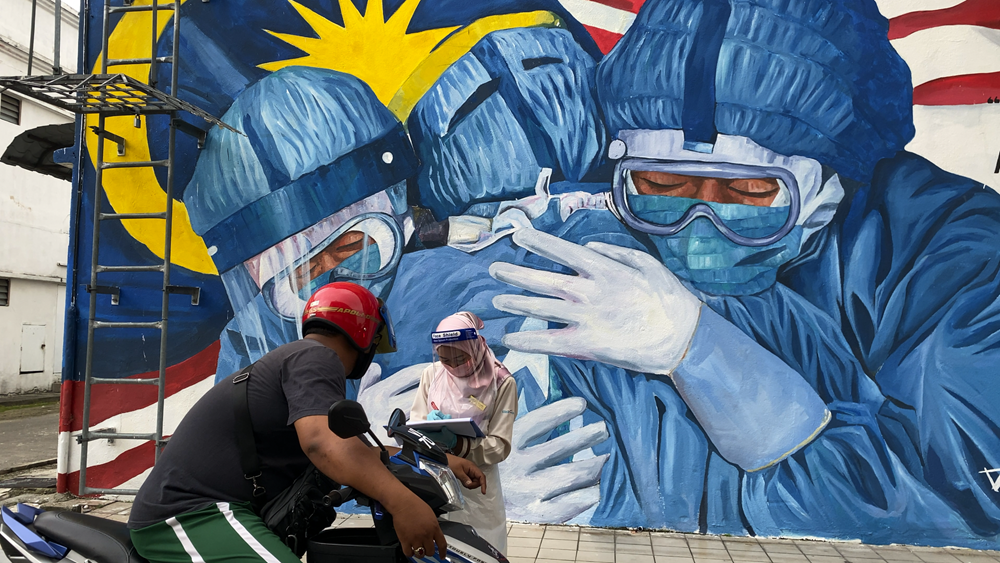
Around 95 percent of daily cases are now Malaysians. Rian Maelzer/CGTN
Around 95 percent of daily cases are now Malaysians. Rian Maelzer/CGTN
It has been a week of announcements of new restrictions, of about-turns, of confusion, all culminating on Monday in the decision to impose a partial lockdown on the entire country – something Malaysia's government had repeatedly vowed not to do.
COVID-19 cases have surged from around 1,500 a day at the beginning of April to topping 4,000 a day recently.
And whereas earlier in the pandemic, there were huge clusters often numbering in the thousands among migrant foreign workers, close to 95 percent of the cases now are Malaysians – and the majority of them infected via random community spread.
Yet a week ago, Ramadan bazaars remained packed with people, shopping malls bustling, restaurants open for dine-in, and schools in session despite countless COVID-19 cases among students and teachers.
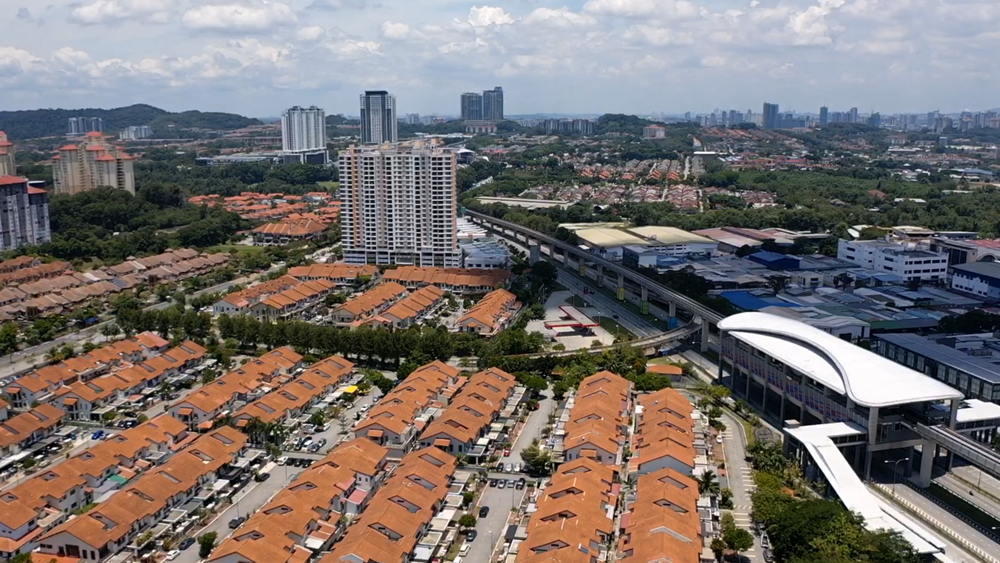
Selangor state surrounding Kuala Lumpur is seeing by far the highest number of cases. Rian Maelzer/CGTN
Selangor state surrounding Kuala Lumpur is seeing by far the highest number of cases. Rian Maelzer/CGTN
Last Tuesday, the government finally acted, announcing a movement control order (MCO) – a partial lockdown - in six districts of the country's populous state Selangor.
Those districts completely surround Kuala Lumpur, but no such restrictions were imposed on the capital city. Not until the following day after a huge backlash from the public and experts.
As the week progressed, there were more announcements and more backtracking. All outdoor exercise was banned, but the bazaars could stay open. The next day, outdoor exercise was allowed but the bazaars were ordered to close.
Businesses flagged by a new data-driven system to identify potential COVID-19 hotspots were told they could remain open, then within hours, ordered to shut immediately.
After some more hesitation, all inter-district, as well as inter-state travel, was banned.
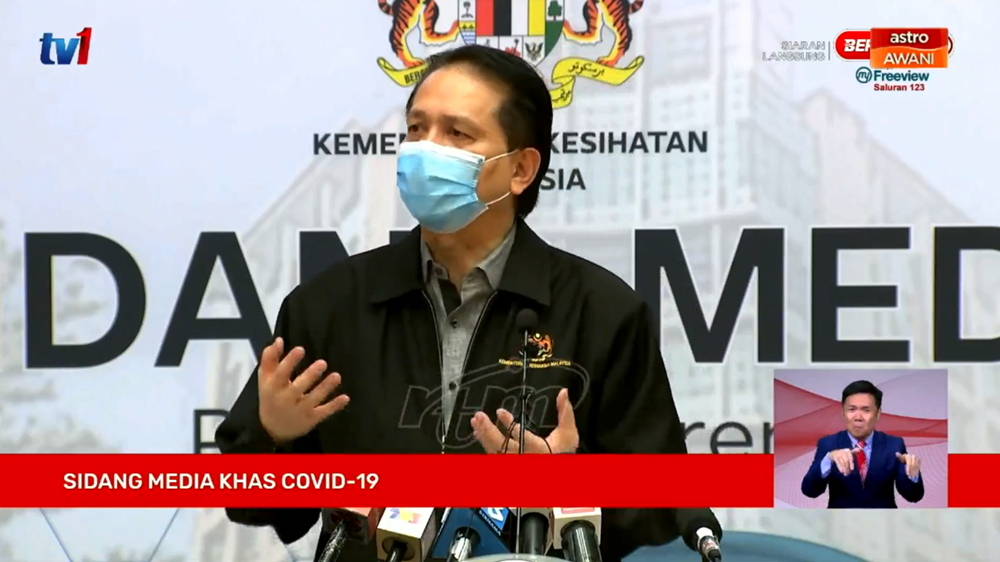
A screen capture of TV1 shows the health director general Dr. Noor Hisham Abdullah giving dire warnings in his first press briefing in two months. /TV1
A screen capture of TV1 shows the health director general Dr. Noor Hisham Abdullah giving dire warnings in his first press briefing in two months. /TV1
Malaysia at the tipping point ahead of Eid
On the weekend, the country's director-general of health Dr. Noor Hisham Abdullah - the civil servant who has been the face and voice of Malaysia's pandemic fight for much of the past 14 months - addressed the media and the people.
It was his first press conference in two months, having seemingly been side-lined by his political masters.
"We are in a critical condition. Public hospital and private hospital, we are running out of ICU (intensive care unit) beds," said Noor Hisham.
"If you are infected and come to the hospital and we do not have an ICU bed, we are in trouble. We do not want to end like countries which have to select who will live and who will die."
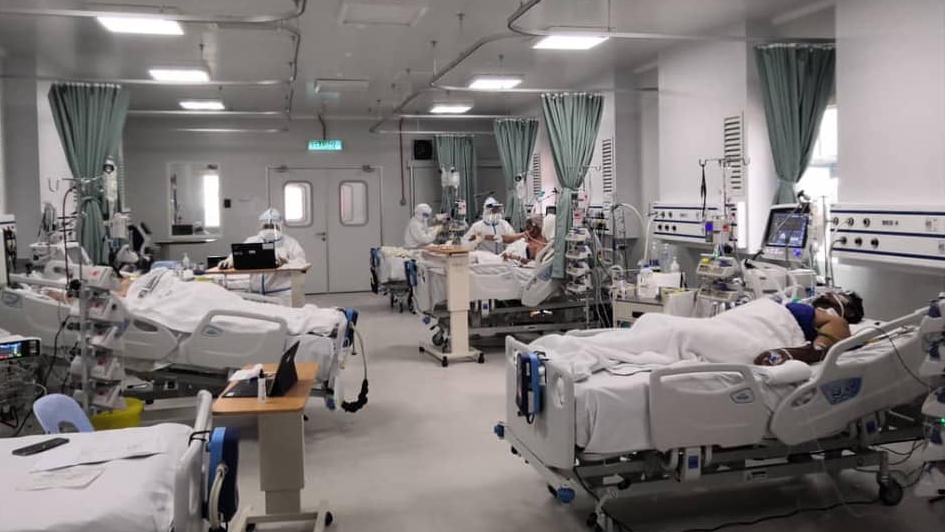
Intensive care beds are nearing capacity in Kuala Lumpur, Malaysia, May 7, 2021. /Ministry of Health
Intensive care beds are nearing capacity in Kuala Lumpur, Malaysia, May 7, 2021. /Ministry of Health
It was the kind of frank, heart-felt plea that had been missing in the past two months.
He advised more sweeping restrictions than the government seems willing to impose, such as closing all non-essential retail and requiring people to work from home once again.
But above all, he expressed concerns that the upcoming Eid holiday to mark the end of Ramadan would tip Malaysia over the brink.
On Monday evening, the prime minister finally announced a nationwide movement control order, a partial lockdown.
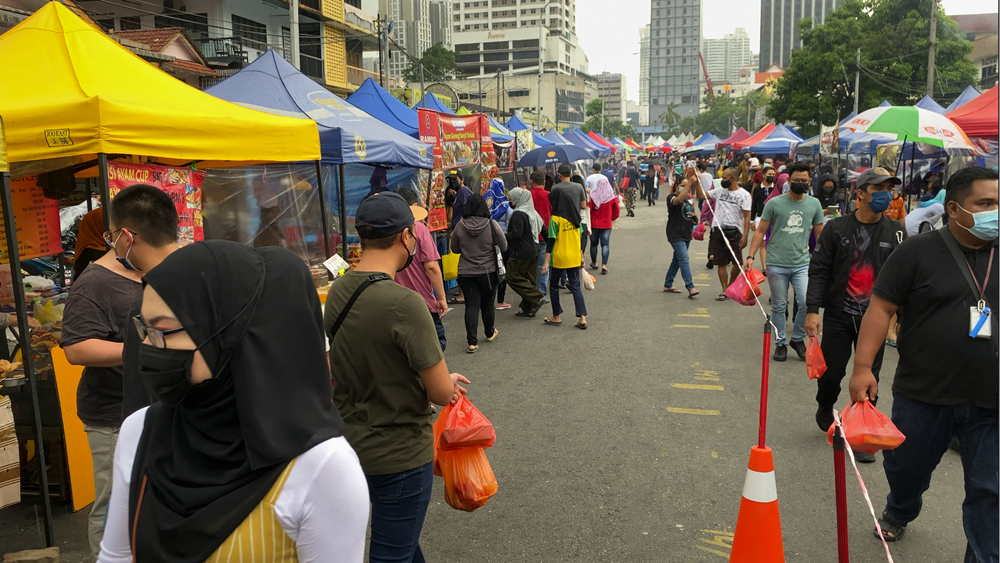
Ramadan bazaars are ordered to shut after an about-turn in Kuala Lumpur, Malaysia, April 17, 2021. Rian Maelzer/CGTN
Ramadan bazaars are ordered to shut after an about-turn in Kuala Lumpur, Malaysia, April 17, 2021. Rian Maelzer/CGTN
"If you plot the curve (of daily infections) you would have known (a nationwide MCO was needed). You don't decide based on the cases day by day. You've got to be preemptive. You should be one step ahead of the curve, not chasing the curve," said former deputy health minister Dr. Lee Boon Chye.
The nationwide movement control order will run through the Eid holiday till June 7. All educational institutions will be closed to in-person teaching, but most economic sectors will remain open.
Most significantly, perhaps, people will not be allowed to visit each other's houses or visit loved ones graves as they normally would do at Eid. Just 50 worshipers will be allowed to attend communal prayers at mosques that can normally accommodate more than 1000 worshippers, just 20 at smaller mosques.
Still, many feel it doesn't go anywhere near far enough, Dr. Subramaniam Muniandy, the president of the Malaysian Medical Association, is among them.
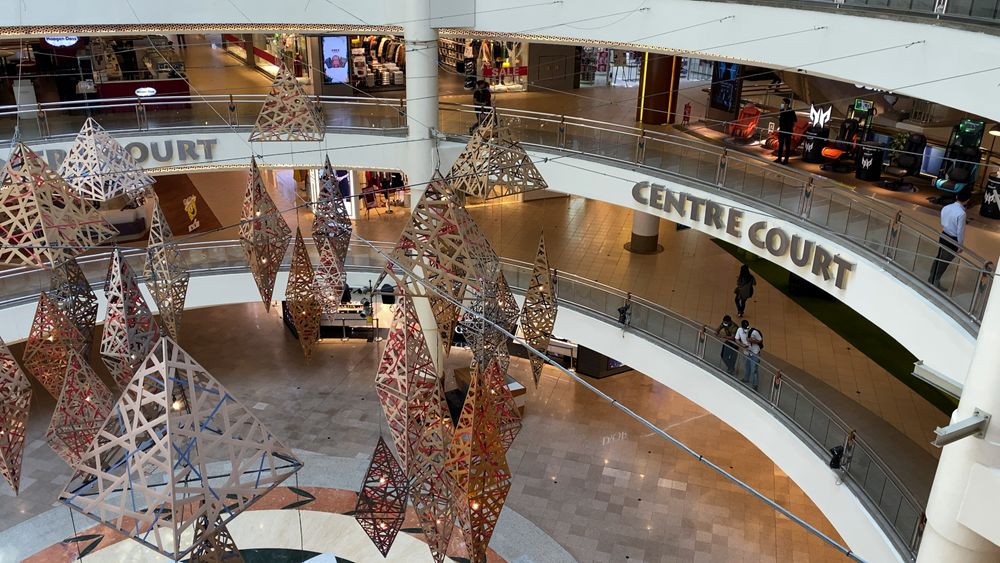
Malls are still allowed to remain open in Kuala Lumpur. Rian Maelzer/CGTN
Malls are still allowed to remain open in Kuala Lumpur. Rian Maelzer/CGTN
"I don't see the purpose of this MCO because you have all economic sectors open which are all over the place, in different locations. I don't see the logic, it's even contradictory," he said.
"The virus has already spread everywhere and it will only get worse."
"These various governmental ministries as well other agencies, the police and so on, they have to coordinate better in giving out consistent and concerted signals to the population, instead of having contradictory statements and flip flops," said political analyst Oh Ei Sun.
Oh and others said it looks as if the key decision-makers are only slowly acknowledging the severity of this latest wave of infections, and realizing that without action, the health director-general's dire warnings that Malaysia could be engulfed by a COVID-19 tsunami like India could prove prophetic.

